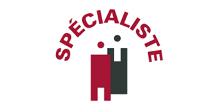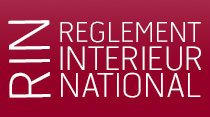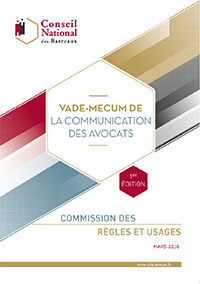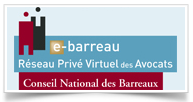Florence Legrand, a member of the European and Internaional Affairs Committee, and Alain Marter, also a member of the Committee and President of the “Admission of Foreign Lawyers” Committee, both took part in the conference in Teheran on 27th July 2015, speaking on the topic of “The Independence of Lawyers and Bar Councils”, at the invitation of the Iran Bar.
The success of the event can be measured by its attendance rate, since there were more than 2000 people in the public and many speakers from different countries, notably Australian, Swedish, German, Austrian, Turkish and Dutch lawyers.
The success of the event can be measured by its attendance rate, since there were more than 2000 people in the public and many speakers from different countries, notably Australian, Swedish, German, Austrian, Turkish and Dutch lawyers.
How the legal profession is organised in the Islamic Republic of Iran
There are two national bars in Iran: on the one hand, the historic structure of the “Iran Bar Association”, which was founded in 1912 and federates the bars of the different provinces, and on the other hand a structure named the “Center of Legal Advisors of the Judiciary”, which the judiciary created approximately a decade ago.
The Iran Bar Association, which closely compares to the French system, is the structure which organised the conference.
The Iran Bar Association, which closely compares to the French system, is the structure which organised the conference.
New opportunities for French lawyers and cooperation prospects
The delegation of the Conseil National des Barreaux was able to meet representatives of the Iran Bar Association during a closed meeting which was held the day after the conference. The delegation then went to the French embassy of Teheran to meet the First Counsellor of the Embassy, a day before the arrival of Ministre Laurent Fabius.
The conculsion drawn from these two meetings was that Iranian lawyers were keen to enter into discussion with their French colleagues – a feeling that was shared by the local bars in the country, who were extremely favourable to the idea of being twinned with French bars.
French and international law firms had not waited for this period of political openness in order to settle in the country, but given that French law constitutes an important point of reference for Iranian law, the recent revival of economic activity and cultural cooperation between France and Iran promises rapid growth in the need for legal services.
The European and International Affairs Committee will continue to invest in this unprecedented convergence with the Iran Bar Association and will keep the lawyers and bars of France informed of the oppurtunities which are sure to open up.
The conculsion drawn from these two meetings was that Iranian lawyers were keen to enter into discussion with their French colleagues – a feeling that was shared by the local bars in the country, who were extremely favourable to the idea of being twinned with French bars.
French and international law firms had not waited for this period of political openness in order to settle in the country, but given that French law constitutes an important point of reference for Iranian law, the recent revival of economic activity and cultural cooperation between France and Iran promises rapid growth in the need for legal services.
The European and International Affairs Committee will continue to invest in this unprecedented convergence with the Iran Bar Association and will keep the lawyers and bars of France informed of the oppurtunities which are sure to open up.
















 LE CONSEIL NATIONAL
LE CONSEIL NATIONAL